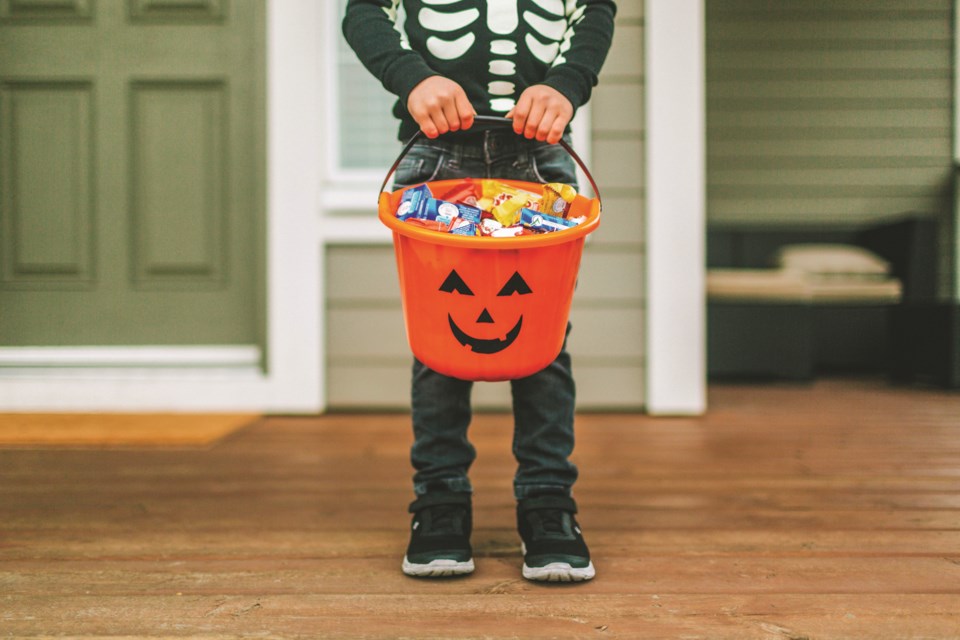Though Halloween candy can have detrimental effects on your teeth, preventative measures like brushing and flossing can reduce the chance of developing cavities.
Dr. Hubert Ng, owner of Airdrie Springs Dental said Halloween is a popular time of year for the consumption of sugary treats, among children and adults alike. But while it can be tempting to binge on candy, they said it is important to not go overboard.
“It’s the amount of time sugar spends in your mouth that is a leading cause of cavities,” Ng said. “The other thing is to not have candy that sticks to your teeth – gummies or toffees – or things that you suck on because that prolongs the amount of time sugar spends in your teeth. It ends up being almost like an acid bath wash continuously over your teeth.”
The negative impact candy has on teeth stems from its high sugar content, Ng said. Most candy is loaded with processed sugar and its sticky consistency can adhere to people’s teeth. If not cleaned off soon enough, the bacteria in sugar can degrade the outer layer of the tooth, called the enamel, and lead to cavities.
“The bacteria in sugar digs a little hole in your enamel,” he said. “Enamel is the hardest part of your teeth and your body, but once [the bacteria] gets through that enamel shell, it gets into the inner nerve layer and that’s where it can spread like wildfire. That’s when you get tooth pain and abscesses, so you want to try to avoid that.”
To avoid cavities, Dr. Jess Chhokar of Langdon Dental said regular preventative measures like brushing and flossing your teeth are crucial. He added the weeks leading up to and after Halloween are good times to perform each activity twice a day, especially if your candy consumption increases during this time of year.
The best time of day to practice oral hygiene, according to Chhokar, is right before going to sleep. People swallow less saliva at night, he said, which allows bacteria to build up in the mouth.
“[Nighttime] is when our tongue and saliva can’t do what they normally do, in terms of bioactively cleaning the teeth,” he said. “If you have something in your mouth and it hasn’t been cleaned, while you’re sleeping, you’re going to get more damage or effects.”
Ng added you should spend at least 30 seconds brushing each “quadrant” of your teeth.
“Brushing should be a minimum of two minutes,” he said. “That’s one thing people kind of rush. Even my kids think it’s a speed sport and they’re in and out in 10 seconds. It’s got to be two minutes. We recommend using a timer.”
While the overconsumption of candy is a common cause of tooth decay, Chhokar said other processed foods might also lead to cavities developing. He specifically highlighted acidic and caffeinated beverages like pop or coffee as a cause of cavities.
“I’d say items that are more processed, that have a high sugar or caffeine content can usually cause problems, especially to the enamel,” he said. “Anything that changes the pH of the mouth can definitely cause that layer to soften, hence making it more vulnerable to bacteria.”
Chhokar said it is also important to recognize children are more vulnerable to tooth decay than adults, not only because they’re typically the ones trick-or-treating on Halloween, but also because the enamel on their teeth is thinner and they might lack the finger dexterity to floss correctly.
Scott Strasser, AirdrieToday.com
Follow me on Twitter @scottstrasser19



